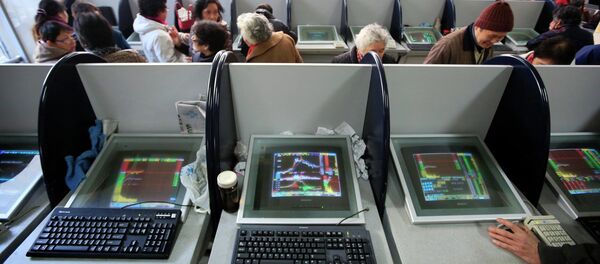In Asia, as the price of oil depreciates on additional shipments from Libya and Oman, growth concerns have been exacerbated. However, the Bank of Japan still feels that the yen is at a ‘comfortable’ level for the nation’s exporters and no additional money-printing should be expected. Global markets are entering a week of turbulence and are very likely to post losses. US Treasuries are at their cheapest in eight years and investment capital is likely to invade Wall Street, fleeing other markets.
Stock markets in the Asia-Pacific region are experiencing low volume at the moment, with the MSCI Index of Asian shares less Japan flat and posed to retreat. Meanwhile, Japan’s Nikkei 225 edged up 0.8% to its 15-year maximum on the back of optimistic sentiment regarding the nation’s main exporters. Markets in mainland China will remain closed until Wednesday.
The yen is trading at 118.99 per US dollar as the latter advanced against other major currencies last week on the news of the Greek accord.
In Europe, German stocks are believed to gain Monday, so it would be high time to buy in the early trades. Later that same day, the business climate index will be published, and is likely to reveal a significant recovery in mainland Europe’s biggest economy.
Janet Yellen will testify before the US Congress on Tuesday and Wednesday, providing clues about the nearest future regarding US monetary policy, coinciding with the release of several benchmark US economic indicators. All of this information is likely to depress markets worldwide, so buy Monday, and sell mid-to-late Tuesday. A significant rise in US jobs is a clear sign of an interest rate hike in June, or even earlier, if mentioned by Ms. Yellen in her Congressional testimony.
“There’s a really strong recovery in the US,” Hiroki Shimazu of the Tokyo-based SMBC Nikko Securities Inc., told Bloomberg. “The hike in rates will start in the middle of this year. Inflation and the economic situation are very different from what’s happening in Europe and Japan.”
Cheaper US Treasuries, however, might signal that some structural problems are brewing in the US economy. For instance, the uneven economic development during the ongoing shale oil boom, the imbalances in the international trade caused by the strengthening dollar, and the high share of government spending in US growth are some of the areas of concern for the world’s flagship economy.
Nonetheless, US Treasuries are still more expensive than their 10-year average. During most of the early 2000s, the yield was nearly 1% above the current figure, at 3.29%.
Investors are getting increasingly nervous as an earlier Fed interest hike is also a possibility. On 20 February, St. Louis Federal Reserve Bank President James Bullard called for the interest rate to rise sooner. The Fed should “get off zero”, he told Radio Sirius XM.
Meanwhile, global oil prices retreated below a psychological threshold of $60/bbl for Brent crude as Libya managed to re-commission a pipeline after a fire. Oman, the largest Middle-Eastern oil producer outside OPEC, expressed its commitment to pumping ‘as much as they can’ in the ongoing struggle for the shrinking crude market. Last week, oil futures retreated 2.1% on average. Oil is posed to extend losses in price due to the global oversupply.
“It’s very much a production- or supply-driven story right now in oil,” Mark Pervan of Melbourne-based Australia & New Zealand Banking Group Ltd. told Bloomberg TV. “The demand side is actually quite flat and we’re seeing a lot of supply in the system.”
In the US, despite oil companies having stopping production at some 556 drilling rigs since December 5 (a 35% decrease in numbers in pursuit of profitability), the pace of oil extraction is beating its early-1970s’ records. With about 1,019 rigs in commission, according to last Friday’s Baker Hughes Inc. data, and a major worker’s strike at refineries and oil storages from Texas to California, nothing seems to be stopping excessive crude production in North America.
One way or another, some major event is anticipated by some of the insiders. Stocks are significantly overpriced (they are currently at their record highs), and might be hurt by the inevitable monetary tightening in the US, Alan Greenspan, former Fed chair, said at the New Orleans Investment Conference the other day.
Greenspan is expecting “either a stock market crash or a prolonged recession, which would then engender another round of monetary reflation by the Fed,” along with the appreciation of gold.
Indeed, metals are mostly gaining in Asia-Pacific trades, with nickel gaining 1%after two weeks of losses. Aluminium rose 1% as well. However, gold has been falling four consecutive weeks, by some 18% now, its longest losing streak since September 2013.
It is not that a market crash is imminent, but what goes up, comes down. The overpriced stocks are very likely to stumble upon Ms. Yellen’s testimony this week.





